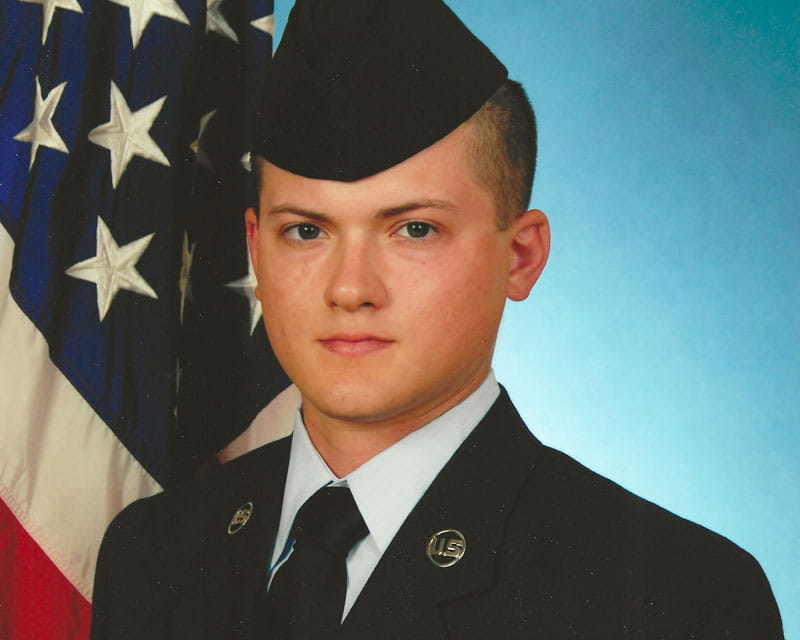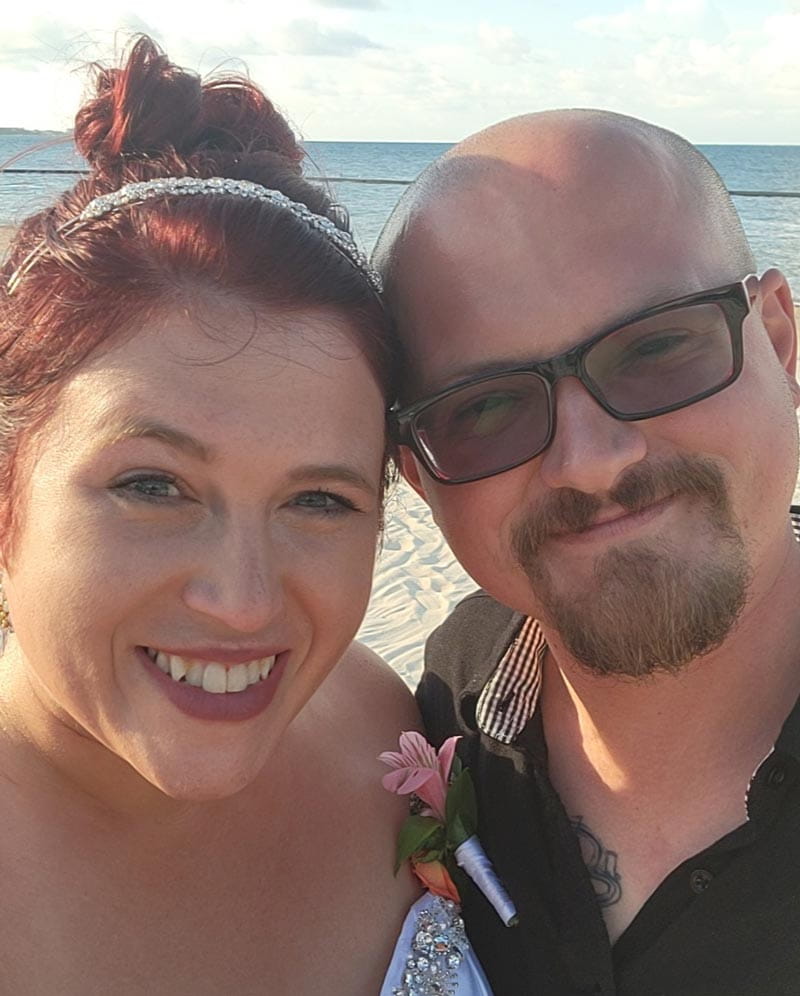
When Justin Davis describes his relationship with Ernest Mazzaferri, MD, he refers to him as Ernie or Dr. Mazz.
“He’s more than my doctor, he’s a friend,” says Justin. “After all,” his voice wavers briefly, “he has had his hands inside my heart.”
Because of Mazzaferri and The Ohio State University Wexner Medical Center, the war veteran finally got answers after years of being told he had mental health issues similar to PTSD. It turned out that he actually has a dangerous genetic heart condition.
Justin joined the U.S. Air Force at age 18 and served in Iraq. Although he’d experienced brief episodes of chest pain before beginning his tour of duty, they became more frequent and intense during his tour. Military physicians were unable to find any physical reason for the pain.
When Justin returned home, he spent the next four years searching for answers, as one specialist after another echoed the PTSD diagnosis. Justin knew the diagnosis was wrong, but his results from repeated cardiology screenings were always normal.
Then, when he was attending college, he collapsed from a massive heart attack. Following a touch-and-go recovery from quadruple bypass surgery, his case caught the attention of researchers who were studying rare heart disorders at the National Institutes of Health (NIH).
The Ohio State Wexner Medical Center’s highly respected reputation with NIH researchers led Justin to the Richard M. Ross Heart Hospital. Through extensive testing and observation, Mazzaferri discovered that Justin was suffering from refractory angina, which has signs and symptoms of a lack of adequate blood flow to the heart muscle.
Understanding there would be no cure for Justin without greater advances in research, Mazzaferri was determined to minimize future damage to his heart.

With the help of his expert team, Mazzaferri performed multiple coronary stenting procedures. Though his health has much improved, Justin continues to have symptoms. Now, an Ohio State research team is studying Justin’s condition in an attempt to advance medical knowledge and help him more.
“Justin’s case is unique, but we’re using a team approach to tackle his complex health challenges. I’m thankful we’ve been able to provide Justin with the care he needs to live a full and happy life,” says Mazzaferri.
“It’s hard to explain how it feels to relax for the first time in years, because I know my doctor is going to do everything in his power for me," says Justin.
"He’s saved my life many times. I consider him a friend and brother-in-arms.”
Finally able to see a future for his life, Justin recently married and hopes to resume his pre-pandemic fundraising efforts on behalf of pediatric cardiology research.
